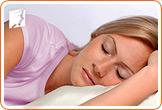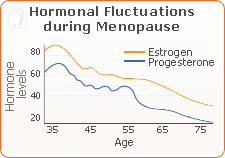
Night sweats, or hyperhidrosis, is a condition in which a person sweats excessively while they are asleep. These episodes often occur during the menopausal transition and are closely related with hot flashes, which affect many menopausal women on a daily basis. Recent findings have found several possible causes of night sweats.
Common Causes of Night Sweats

Night sweats are most commonly caused either due to menopause or a genetic tendency. Menopausal night sweats occur because of an imbalance in hormonal levels. Women over 40 may suffer regularly from a range of menopausal symptoms due to this imbalance. These can range from depression and anxiety to incontinence and night sweats. Night sweats are a common result of hormonal imbalance during pregnancy and menopause.
Other Causes of Night Sweats
Anti-depressants and Night Sweats:
The chance of someone who is taking anti-depressants suffering from night sweats as a side effect is 8 - 22%.
Menopause is the most common reason for night sweats among women over the age of 40, but other factors have been identified as possible - but less common - causes of the condition.
Infections. Sufferers of tuberculosis may experience night sweats as a side effect. Tuberculosis isn't the only bacterial infection linked to this condition, and others such as abcesses, osteomyelitis, and endocarditis may all cause night sweats.
Idiopathic hyperhydrosis. This condition causes the human body to sweat excessively without identifiable cause. It is often genetic.
Medications. Certain medications can cause night sweats in some people, and anti-depressants are the most common drug to cause this. Other drugs can also cause night sweats, such as aspirin.
Treatments for Night Sweats

There are many methods which can be tried to relieve the symptoms of night sweats, ranging from keeping cold water at hand to the use of moisture-wicking nightwear. More drastic methods, such as hormone replacement therapy (HRT), are also possible treatment options for night sweats.
There are many simple ways of easing night sweats, such as lowering the temperature of your sleeping environment by using a fan or air conditioning. Avoiding spicy foods and caffeine before bedtime may also ease night sweats for many sufferers. Talk to your doctor about more treatment options available.
Sources
- The National Institute of Health. "Signs of the Menopausal Transition" www.nih.gov
- Boston Women's Health Collective. "Hot Flashes, Night Sweats and Sleep Disturbances". Our Bodies, Ourselves, 2006.
- Von Muhlen, DG, et al. "A community-based study of menopause symptoms and estrogen replacement in older women". Maturitas. Sept 1995; 22(2):71-8.


